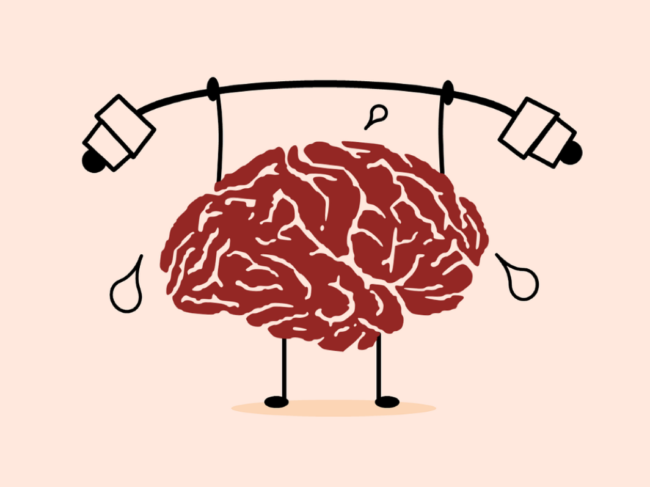Eddie Naisby is 92 years old. Living with his wife in North Wales, he is an active member of the community: the former music teacher is part of two bands and volunteers at the national trust every week. Where does a man born in 1928 find the energy for all these activities? Well, the answer may have something to do with his other hobby: Eddie is the oldest competitive runner in Wales1.
We’ve all heard whispers here and there about how keeping fit helps you stay mentally sharp, but recent research may have uncovered a missing link. Results of a 2019 study have revealed that physical fitness increases cognitive performance by keeping the microstructure of the brain – specifically, the “white matter” regions – intact2.
Within the brain there are regions composed of mostly “grey matter”, the bodies of the neurons (nerve cells) that make up the brain. Beneath this layer is mostly “white matter” made up of axons, the cable-like projections that neurons use to communicate with each other. These connections are important for cognitive and nervous system functions throughout the body. When white matter deteriorates, it affects the individual’s mood, ability to think and general coordination and balance3.
In the paper, volunteers were given an MRI scan to determine the number and condition of axons in their brain. They then underwent a simple endurance test to assess their fitness, followed by various tests of mental ability used to give an overall cognitive score (e.g. IQ). When researchers analysed the results, they found just what they were looking for – not only did physical fitness improve overall cognitive performance, but fitter individuals scored higher in each individual test of mental ability. Furthermore, the beneficial effect of physical fitness on white matter health was found to be a crucial link in the chain (Fig.1).
So, what does this tell us?
We know from previous studies that exercise helps maintain cognitive function4 and this study now suggests that fitness’s positive effects on our brains interconnecting cables are to thank for that. What we don’t know is why a fit body is so good for these cables. Researchers suggest that decreased inflammation (always a plus5) and/or increased blood flow to the brain protects axons from damage, among other possibilities. For now, we can’t be sure, but future research will hopefully fill in the gaps.
Regardless of the unknowns, what this research tells us is that we can all benefit mentally from keeping fit. And while this particular study focused on young people, it’s important to note that the benefits are not restricted by age group6.
Remember Eddie? He took up running at age 55, after a rush to post a letter left him out of breath. He’s proof that it’s never too late to start taking better care of our health. And with evidence that we pass these benefits on to our children7, it’s never too early either.
Edited by Alex Brumwell & Frankie Macpherson
References
- https://www.denbighshirefreepress.co.uk/news/16146438.ready-eddie-go-prestatyn-runner-ruthin-celebrates-90th-birthday-jog/
- https://www.nature.com/articles/s41598-019-49301-y#Sec2
- https://www.healthline.com/health/white-matter-disease#symptoms
- https://journals.lww.com/acsm-essr/Fulltext/2018/10000/Protective_Effects_of_Exercise_on_Cognition_and.4.aspx
- https://www.henryford.com/blog/2018/05/inflammation-and-your-diet-whats-the-connection
- https://www.nature.com/articles/s41598-019-49301-y#Sec2
- https://www.bbc.co.uk/news/health-43659340?intlink_from_url=https://www.bbc.co.uk/news/topics/c40rjmqdw54t/genetics&link_location=live-reporting-story

